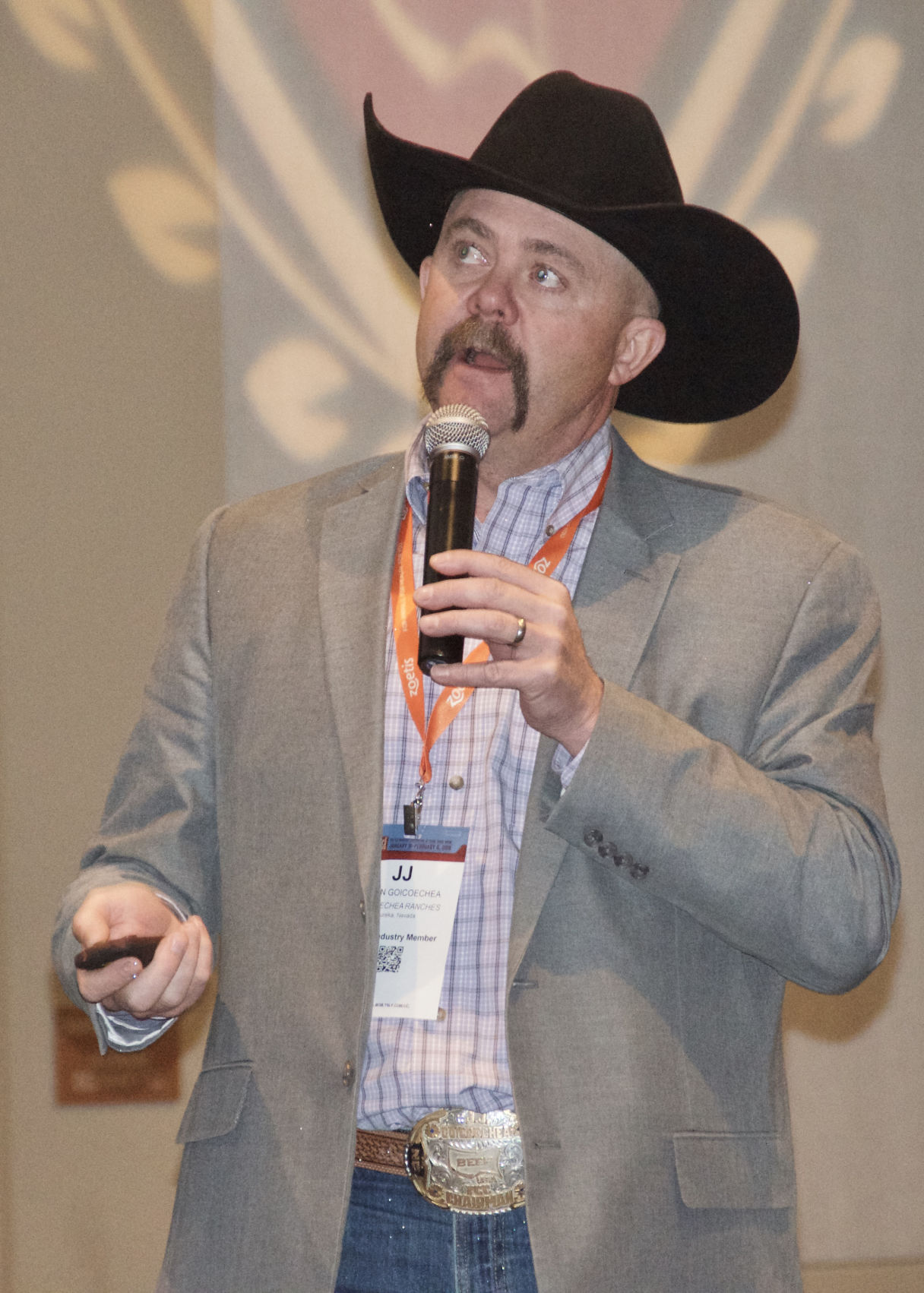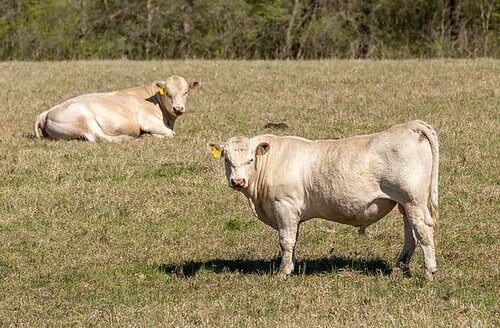Testing and monitoring herds for Trichomoniasis is the best way to prevent the spread of the venereal disease, according to Nevada state veterinarian J.J. Goicoechea.
“There is no treatment for Trich and no lasting immunity,” Goicoechea said during a session of Cattlemen’s College prior to the 2018 Cattle Industry Convention in Phoenix, Arizona. “Open cows, late calves, summertime prolapses and weak or stillborn calves are all signs that Trich may be present in a herd.”
The Tritrichomonas foetus protozoa survives in the sheath of an infected bull and can also be present in the clitoral tissue of an infected cow. A vaccine is available, but should not be considered a silver bullet because there is no immunity built up against Trich.
“If you know you have Trich in your herd, you have to get it cleaned up. Get open cows culled, identify positive bulls and get rid of them,” Goicoechea said. “If you ever get Trich in your herd, you will never not test for it.”
Goicoechea said pregnancy checking cows is an important management practice as it can help determine which cows may have the disease. It’s important to know why cows are open and manage them accordingly. Another tactic is to cull all bred cows that don’t calve by the start of the breeding season.
The best time to test bulls for Trich is 30 to 45 days after breeding season is over. Nevada has a testing program where bulls must test negative for Trichomoniasis if they are 12 months old or older.
How to test
Different testing procedures are available for testing bulls. Prepucial scraping from a restrained bull’s sheath can be used for microscopy, PCR (Polymerase Chain Reaction), or pooled tests. Goicoechea said the result of the test is only as good as the scrape that is taken. The bugs survive where the penis reflexes.
For best results, test samples should be kept warm—but not be subjected to direct light. Ideally, keep the samples near body temperature and transport them to the laboratory as soon as possible.
A positive test via microscopy will lead to contact of the owner, who can confirm the results with a PCR test if they choose. Bulls must be tested three times when a PCR test is given to make it 99 to 100 percent accurate.
When a lab receives a positive test in Nevada, the state veterinarian will call the local veterinarian dealing with the herd and develop a plan to deal with the problem. Goicoechea said they also identify other cattle herds near the infected herd and determine if there is any chance the herds could have mixed and been exposed to Trich.
“In Nevada, bulls must have a Trich tag and use a secondary means of identification. In some states virgin bulls don’t have to be tested, but (Nevada) requires all bulls to be tested, even home-raised bulls,” he said.
Goicoechea said when bulls are sold across state lines, they must meet the requirements of the state they are being shipped to.
“States and breeders have to want to clean it up and have the industry support or a regulatory testing program won’t work,” he said. “Some states have even more aggressive programs than (Nevada’s).”
Some states don’t allow open cows to be sold, except for slaughter. Nevada won’t allow cows or heifers to be sold for breeding purposes if a producer is under hold. Producers can remain under hold in Nevada and continue to operate depending on their business plan for calves.
Testing females is more common if several abortions are seen. Cows can clean up from Trich, generally within two cycles and after the bulls are tested Trich negative.
When older bulls are targeted for culling, he suggested testing to be sure a problem is targeted prior to blaming one area of the herd.
“In extreme cases, Trichomoniasis can cause a 10 to 30 percent loss in the calf crop. We don’t want to see that kind of problem and that’s why it’s so important to know the status of your herd,” Goicoechea said.
Sign up for HPJ Insights
Our weekly newsletter delivers the latest news straight to your inbox including breaking news, our exclusive columns and much more.
Jennifer Carrico can be reached at 515-833-2120 or [email protected].


